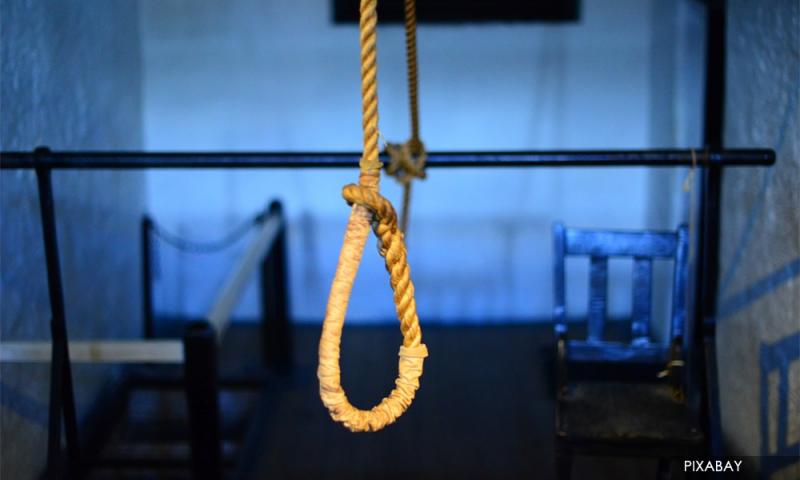COMMENT | 'Mandatory' death penalty still being meted out for drug offences
COMMENT | The Malaysians Against Death Penalty and Torture (Madpet) is appalled that yet another person has been sentenced to death for drug trafficking despite the perception that Malaysia has amended the law on drug trafficking by abolishing the death penalty especially for minor offenders or ‘drug mules’, other than the kingpins of drug trafficking.
In April, Shahfary Sabri, a widower was sentenced to death by the High Court after he was found guilty of trafficking 149.5g of methamphetamine three years ago.
Does mere possession of over 50g of methamphetamine justify death?
In Malaysia, if one is found in possession of 50g or more in weight of methamphetamine, he will be presumed under Section 37 of the Dangerous Drugs Act (DDA) to be a drug trafficker, until the contrary is proved. If less, he would not be presumed to be a drug trafficker.
The Dangerous Drugs (Amendment) Act 2017, which provided the new possibility of a sentence other than death for drug trafficking was gazetted in December 2017, and came into force on March 15, 2018. There was no justification for the three-month delay in having it come into force, as all those who committed the offence before that date will still be subjected to the mandatory death penalty.
In this case, Shafary was charged with trafficking the drugs in a hotel room on October 19, 2018, which means that now, there was the possibility of him not being sentenced to death. Sadly, media reports did not mention whether an alternative sentence to death was even considered.
To satisfy conditions for an alternative sentence means abandonment of right to a fair trial.
Section 39B(2A) of the amended DDA, now states that "the court in imposing the sentence of imprisonment for life and whipping of not less than 15 strokes, may have regard only to the following circumstances: (a) there was no evidence of buying and selling of a dangerous drug at the time when the person convicted was arrested; (b) there was no involvement of agent provocateur; or (c) the involvement of the person convicted is restricted to transporting, carrying, sending or delivering a dangerous drug; and (d) that the person convicted has assisted an enforcement agency in disrupting drug trafficking activities within or outside Malaysia."
The amended law is unjust as it undermines the right to a fair trial, as one of the rights of any accused person is the right to remain silent – being the right not to take the stand and deliver evidence themselves, which, if he or she does so, that accused shall be subject to cross examination by the prosecution.
In most criminal trials, the best advice is for the accused not to personally take the stand as a witness, and to call other defence witnesses. Remember that even in PKR president Anwar Ibrahim's trial, he elected not to take the stand as a witness – but elected to just make a statement, whereby in such a situation, there will be no cross-examination by the prosecution. However, in this case, Shahfary took the stand as the only defence witness.
It also undermines the right to a fair trial, because after conviction and sentencing at the court of first instance, one has the right to appeal – two rights of appeal. If the court of first instance is the High Court, which is the case when one is charged with a capital offence (death penalty), the right to appeal lies to the Court of Appeal, and thereafter to the Federal Court.
It will be unjust for the convicted, to prejudice this rights of appeal simply to ‘admit’ and assist enforcement agencies to save himself from the death penalty, and hope that he will be sentenced to imprisonment.
At the end of the day, the amendments may have brought about the possibility of an alternative sentence to the death sentence, being imprisonment for life with whipping of not less than fifteen strokes.
Madpet advocates different sentences depending on the amount of drugs involved, or even what exactly was done. Possession only may attract a lighter sentence, compared to selling, distributing or smuggling into Malaysia the drugs.

Given the conditions imposed, the mandatory death sentence may be abolished, but practically it can be said that we still have the mandatory death penalty for drug trafficking.
Judges' sentencing powers must not be inhibited by Parliament
Section 39B(2A) is also wrong, because it prevents judges from considering any or all mitigation and aggravation factors before deciding on a just sentence for each case.
Worse is the apparently mandatory requirement of "the person convicted has assisted an enforcement agency in disrupting drug trafficking activities within or outside Malaysia". Note an actually innocent person certainly cannot satisfy this condition.
Abolish presumptions, restore onus on DPP to prove all elements of crime
Section 37 presumptions remain an affront to justice and a fair trial, especially for death penalty offences.
In normal criminal cases, it is the duty of the prosecution to prove every element of the crime.
With these presumptions in the DDA, the finding of a person with drugs in their possession presumes that he/she is a drug trafficker or an offender, and the accused person has the duty to prove that the drugs were not his/hers, and he did not commit the offence which is a very onerous duty, for which the lay person, especially the poor, does not have the needed skills, capacity or resources.
For death penalty cases especially, the burden of proof of all elements of the crime must always rest with the prosecution.
Note that besides the weightage presumptions, there are many other presumptions like ‘"if any dangerous drug is found to be concealed in any premises, it shall be presumed, until the contrary is proved, that the said drug is so concealed with the knowledge of the occupier of the premises." How exactly can you prove that someone else may have hidden the drugs, possibly without your knowledge, in your room, house or car?
Lawyers generally may also lack the skills and capacity of conducting investigations needed to secure evidence and additional witnesses to rebut presumptions. Many criminal practitioners also do not even visit the site the alleged offences is said to have been committed.
The requirement for pre-trial disclosure by the prosecution is also much lacking, in terms of the needed material that need to be provided to the accused, and the time that it has to be provided.
Hundreds on death row despite changed position for minor drug traffickers
Sadly, the Dangerous Drugs Act 1952, as amended today, still does not deal with the hundreds still languishing on death row. There must be an act of Parliament that will commute the death sentences to imprisonment, or even provide for a re-sentencing of those on death row.
The amended law will also not apply for those who allegedly committed the offence before March 15, 2018, as all of them will still be subjected to the mandatory death penalty.
In August 2020, de facto Law Minister Takiyuddin Hassan said that, as of Aug 11 that year, a total of 918 prisoners were sentenced to death under Section 39B of which 472 are Malaysians and 446 are non-citizens.
Make special review committee's report public
The special committee to review alternative sentences to the mandatory death penalty, made up of former Federal Court judges, former Attorney-General’s Chambers officers, former Prisons Department senior officers, the Bar Council, Human Rights Commission of Malaysia, academics, criminologists and civil society organisations submitted their report to the government on July 17, 2020 but sadly to date the report is still not made available to the public.

Failure in amending law to abolish death penalty
The previous BN government and the Pakatan Harapan Plus government were already on the way towards the abolition of the death penalty, starting with the mandatory death penalty. The Perikatan Nasional (PN)-BN Plus government is also of like mind.
With reference to the report of the special committee on alternative sentences, the de facto law minister also said that: “The findings are expected to answer the debate on whether the government will propose amending the punishment for drug trafficking to a minimum jail sentence so that punishments will be given based on the facts of each case.”
Madpet hopes that the government will not confine itself to drug trafficking, but will do the needed for all death penalty offences.
Despite Malaysia’s representation for the abolition of the death penalty, especially the mandatory death penalty, little has been done to amend necessary laws. The death penalty still even exists for offences where there are no victims who suffered bodily harm or death during the commission of the offence.
The possibility of miscarriage of justice, where an innocent person may be wrongly sentenced to death or even hanged is very real – noting that human beings are not infallible. Mistakes can happen on the part of the police, enforcement officers, prosecutors, lawyers and even judges. Once dead, nothing can be done to correct such mistakes justly.
Madpet calls for the following:
- The removal of the restriction in the Dangerous Drugs Act 1952 on factors that can be considered by judges before the imposition of a just sentence;
- The abolition of legal presumption in the Dangerous Drugs Act 1952, and place on the prosecutors the burden of proving all elements of the crime, as is the norm in most criminal cases;
- Enactment of law that will enable the commutation of death sentence, or the provision of the ability for courts to review death sentence of drug traffickers as even the amended law, does not address offences committed before March 15, 2018 or the many hundreds that are still languishing on death row;
- The government to immediately disclose the findings and report of the Special Committee to Review Alternative Sentences to the Mandatory Death Penalty for we also ought to be given the right to know or even make further inputs;
- For a review of the offence of drug trafficking, and the introduction of different alternative, more just sentences depending on the facts of each case, emphasising also on the principle of rehabilitation and second chances;
- For the abolition of the death penalty, and the imposition of a moratorium on executions pending abolitions; and
- For Malaysia to respect the right to a fair trial, and remove provisions in law that unjustly compels one to abandon one’s fair trial rights simply to avoid the death penalty.
CHARLES HECTOR represents Malaysians Against Death Penalty & Torture (Madpet).
The views expressed here are those of the author/contributor and do not necessarily represent the views of Malaysiakini.
RM12.50 / month
- Unlimited access to award-winning journalism
- Comment and share your opinions on all our articles
- Gift interesting stories to your friends
- Tax deductable
